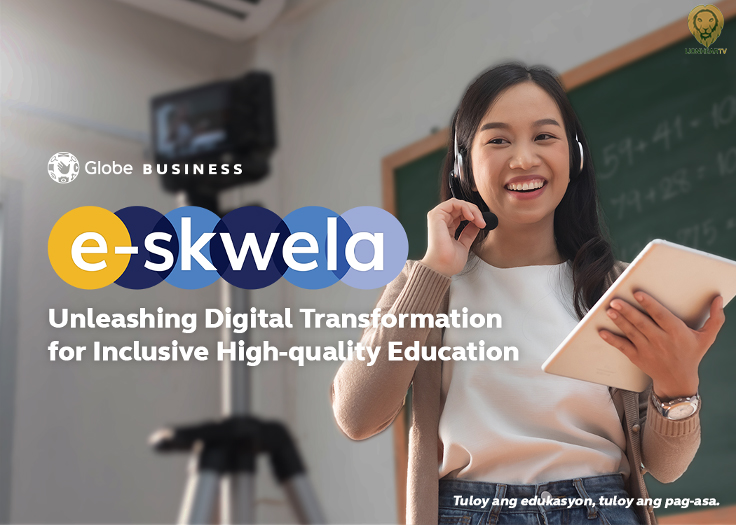There is no stopping the digital disruptions in education, and the only way forward for the sector is to experience these changes and embrace the possibilities they create to make learning relevant and lasting for Filipino educators and learners.

This was one of the main messages at the first installment of Globe’s e-skwela this year, which gathered hundreds of school administrators, educators and education organizations at Radisson Blu in Cebu City and via Zoom.
What was originally an online learning series, this year’s e-skwela is a hybrid event with a panel of industry experts sharing first-hand insights and new perspectives on how schools and educators can approach digital transformation to enrich the classroom experience and ensure student-centered learning. Participants earned CPD credits where they can use for the renewal of their Professional Identification Card (PIC) registration and license under the regulation of the (Professional Regulation Commission) PRC.
“With the education sector caught in the crossfire of change, schools and learning institutions are now in an environment heavily reliant on digital platforms. Although digital learning tools and techniques have been utilized, discussions about their effectiveness and limitations continue,” said KD Dizon, Vice President for Globe Business, in her opening remarks.
“To shed light on the discussion, Globe is committed to partnering with academic and tech experts to set the country’s adaptability to the different modes of learning in motion through a robust suite of digital solutions hinged upon our core value proposition of lifelong learning,” she added.
e-Skwela 1st run features insights from Ed Tech experts
One of the speakers for this year’s e-skwela is Dr. Edward Quinto, Associate Professor and Director of the Center for Teaching and Learning- Outcome-based Education at Mapua University, where he discussed how hybrid and flexible learning pathways are the future of education.
“In the midst of tech changes, what we want to become are schools, administrators and teachers who really provide our students with hope, which means not only service but to become empowered enough to make informed decisions for our learners regardless of what they have or not have and what experiences they have gone through,” said Quinto.
Galvin Ngo, Director of the Ateneo SALT Institute, on the other hand, emphasized the need to shift views on hybrid learning as the future of education and open up to its many possibilities. For example, a video conferencing platform allows access to experts not limited by space or location and brings other people into the classroom, which in turn helps enrich the experience of learners.
“If we embrace the possibilities of co-teaching with technology, imagine the things that we can do that may not have been humanly possible for our students,” said Ngo, who talked about combining digital technologies and culture change in learning and teaching at the e-skwela seminar.
Whereas, Jiggy Garido, Director of Information and Communications Technology at De La Salle Lipa, gave participants a run-through of the process that schools go through in revolutionizing learning and enhancing student-teacher engagement in the classroom.
“Sometimes we are already so used to certain parameters that we forget that there are anomalies and outliers that can give us the opportunity to grow, innovate and be something different. So, let us look at these outliers and see how we can improve,” he said.
Participants key takeaways
Participants, both online and on-ground, found the kick-off event informative, relevant, and relatable to real life challenges of face-to-face classes, helping them understand more the power of digital transformation in education. The discussions and speaker sessions resonated with them, allowing for a meaningful connection to the content. The engaging panel sessions presented an opportunity for educators to enhance their teaching methods through digital innovation, resulting in an overall positive and enriching experience for all attendees.
The first session has already laid the ground on what innovation and digitization can do for the future of education. Globe e-skwela is slated to run throughout the year with different topics aimed at helping educators adapt to the demands of 21st century learning through digital adoption. It is also aligned with Globe’s commitment to the United Nations Sustainable Development Goals no. 4 on helping drive quality education for the nation. Stay tuned for the details on the next e-skwela national event on July 14, 2023.
You can watch the first run of e-skwela here and to get more information about Globe’s learning ecosystems, visit www.globe.com.ph/education.

